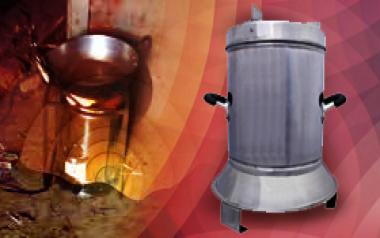The importance of clean and efficient cook stoves for meeting the challenges of clean energy supply, particularly to the poor, assumes great significance in times of global effort to reduce carbon emissions and reducing health hazards associated with the emissions. Further, unsustainable collection and use of fuel wood puts pressure on natural/forest resources and can hasten land degradation and other environmental problems linked to deforestation. Similar problems are also faced by cooks and related persons at the operational level in several government schemes and programmes like Mid-Day Meal (MDM) schemes in schools and Supplementary Nutrition Programme (SNP) implemented through the Anganwadis in ICDS where cooked meal being provided to pre-school children, pregnant women and lactating mothers using traditional biomass based cook-stoves. Improved Chulhas (Biomass Cook-stoves) that burn biomass more cleanly and efficiently can help mitigate the above problems. Thus, there is a strong justification to promote the use of improved biomass cook-stoves for households and institutional cooking applications.
1. To develop and deploy improved biomass cook-stoves for providing cleaner cooking energy solutions in rural, semi-urban and urban areas using biomass as fuel for cooking.
2. To mitigate drudgery of women and children using traditional chulha for cooking.
3. To mitigate climate change by reducing the black carbon and other emissions resulting from burning biomass for cooking.
1. Kitchens of Mid-day Meal (MDM) scheme, Aangwadis, Forest Rest Houses, Tribal Hostels and small business establishments (road side dhabas, small hotels and restaurants and a variety of cottage industries like textile dyeing, drying of spices etc.) to be supplied with improved biomass cook-stovesunnat chulhas complying with improved standards.
2. Individual households in rural areas who use biomass for cooking purposes.
